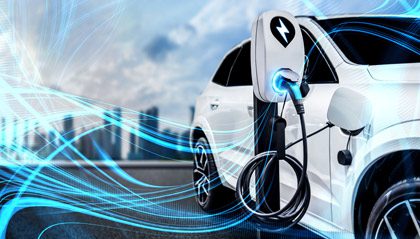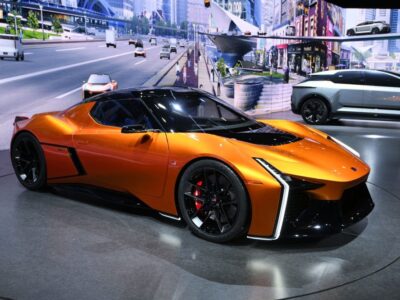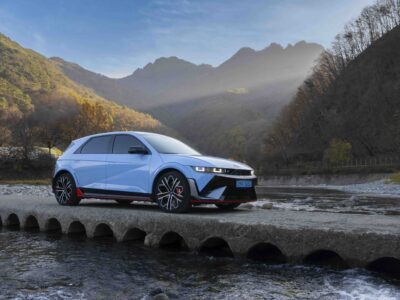The 20th-century United States auto industry was largely centered in Detroit and other Midwestern industrial cities, but 21st-century production has a decidedly Southern flavor — especially when it comes to electric vehicles (EVs). According to EDF’s and WSP’s U.S. Electric Vehicle Manufacturing Investments and Jobs report, companies have announced more than $120 billion in EV-related investments in the U.S. since 2015. Data from the Center for Automotive Research suggests half of those investments are in southern states.
Much of the action is taking place in rural areas of Georgia, Kentucky, Tennessee, and the Carolinas, and includes some of the region’s biggest manufacturing projects in decades. In the last year alone, manufacturers have invested more than $92 billion in EV and battery factories in the U.S., Electrek reported. Most of those investments are tied to the Inflation Reduction Act (IRA), a significant piece of climate legislation signed into law in August 2022.
Ten states accounted for nearly 90% of the post-IRA investments, and five of the top seven states are located in the South. According to Electrek, here are the top three:
- Georgia: $31.5 billion in EV investments and 33,600 jobs
- Michigan: $18.9 billion in investment and 19,700 jobs
- Tennessee: $18.4 billion in investments and 20,500 jobs
Rounding out the top seven, with more than $10 billion each, are South Carolina, Nevada, Kentucky, and North Carolina. These investments are expected to create between 10,000 and 20,000 new jobs per state.
Major EV and clean energy investments were being made across the South even before the IRA was signed, thanks to the bipartisan Infrastructure Investment and Jobs Act, which was signed into law in November 2021.
According to the U.S. Bureau of Labor Statistics, among other things, the infrastructure bill allocated $7.5 billion to build out a nationwide EV charging network. In turn, automakers have been encouraged to accelerate the electrification of new cars and trucks.
These trends have been a boon to Southern states whose previous manufacturing sectors, such as textiles, departed for overseas production long ago. Since then, many states have pursued investments in other industries — especially chemicals and automobiles.
These efforts succeeded in part because of the South’s embrace of advanced production technologies, according to Matt Kisber, co-founder and CEO of Silicon Ranch Corporation and previous commissioner of the Tennessee Department of Economic and Community Development (ECD). He played a big part in helping lure Volkswagen to build an auto plant in Chattanooga.
“What we’re seeing play out substantiates the premise that the Southeast is very knowledgeable and productive around advanced manufacturing,” Kisber told Canary Media in an interview. “There’s a legacy there, and in my opinion, battery storage combines all of that — it’s a current-day take on a lot of skills that we’ve used over the last 50 years in the region.”

Photo Courtesy TABEC
Among the biggest EV projects to be announced in recent years is Ford Motor’s Blue Oval City in Stanton, TN, which the carmaker calls a “mega campus” that will produce the next generation of electric F-Series trucks and batteries.
According to a press release, the $5.6 billion facility, announced in September 2021, is expected to create about 6,000 new jobs.
That’s a lot of jobs in a town with a population of roughly 400 people.
“It’s tremendously overwhelming, just everything that has to be done,” Stanton Mayor Allan Sterbinsky told The Wall Street Journal.
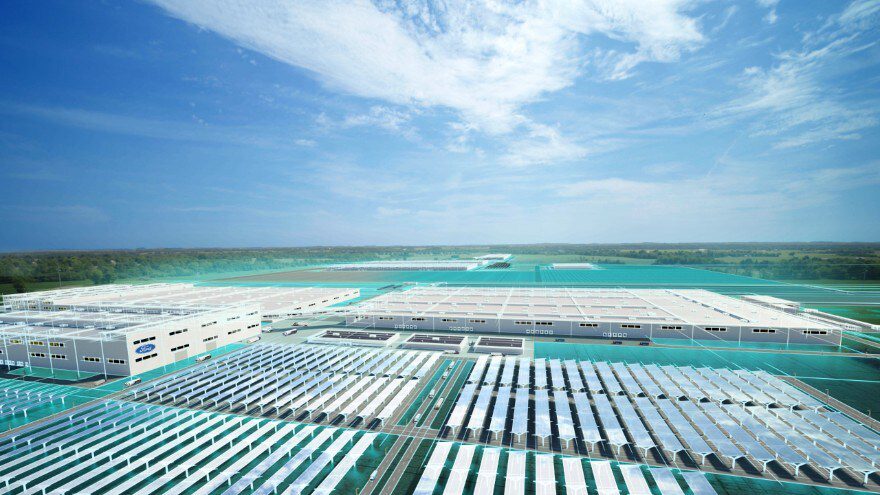
Photo Courtesy Ford
Another major project, announced in November 2022, is a $3.2 billion cathode manufacturing plant being built in Clarksville, TN, by chemical conglomerate LG Chem. That project is expected to create 850 new jobs and represents the largest foreign direct investment in Tennessee’s history, The Tennessean reported.
When completed, the Clarksville plant is expected to produce an annual output of 120,000 tons of cathode material by 2027. According to a press release, that’s enough to power 1.2 million high-performance EVs.
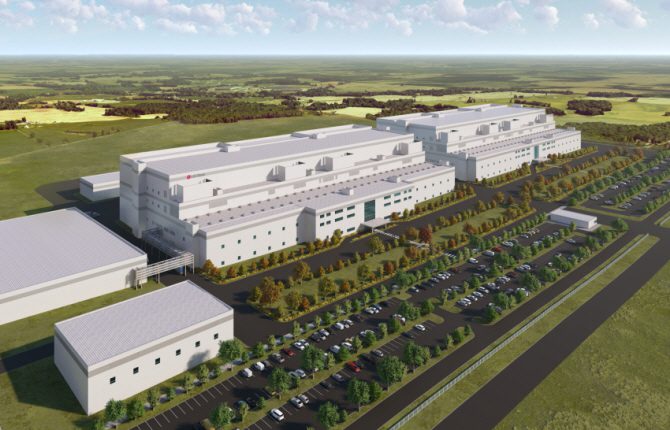
Photo Courtesy LG CorpThe Clarksville announcement was followed six months later by the news that Hyundai Motor Group and LG Energy Solution will build a $4.3 billion electric battery facility as part of Hyundai’s new EV assembly plant in southeast Georgia, the AP reported. The battery plant is expected to supply batteries for 300,000 EVs a year or equal to the projected production of the adjoining vehicle assembly site.

